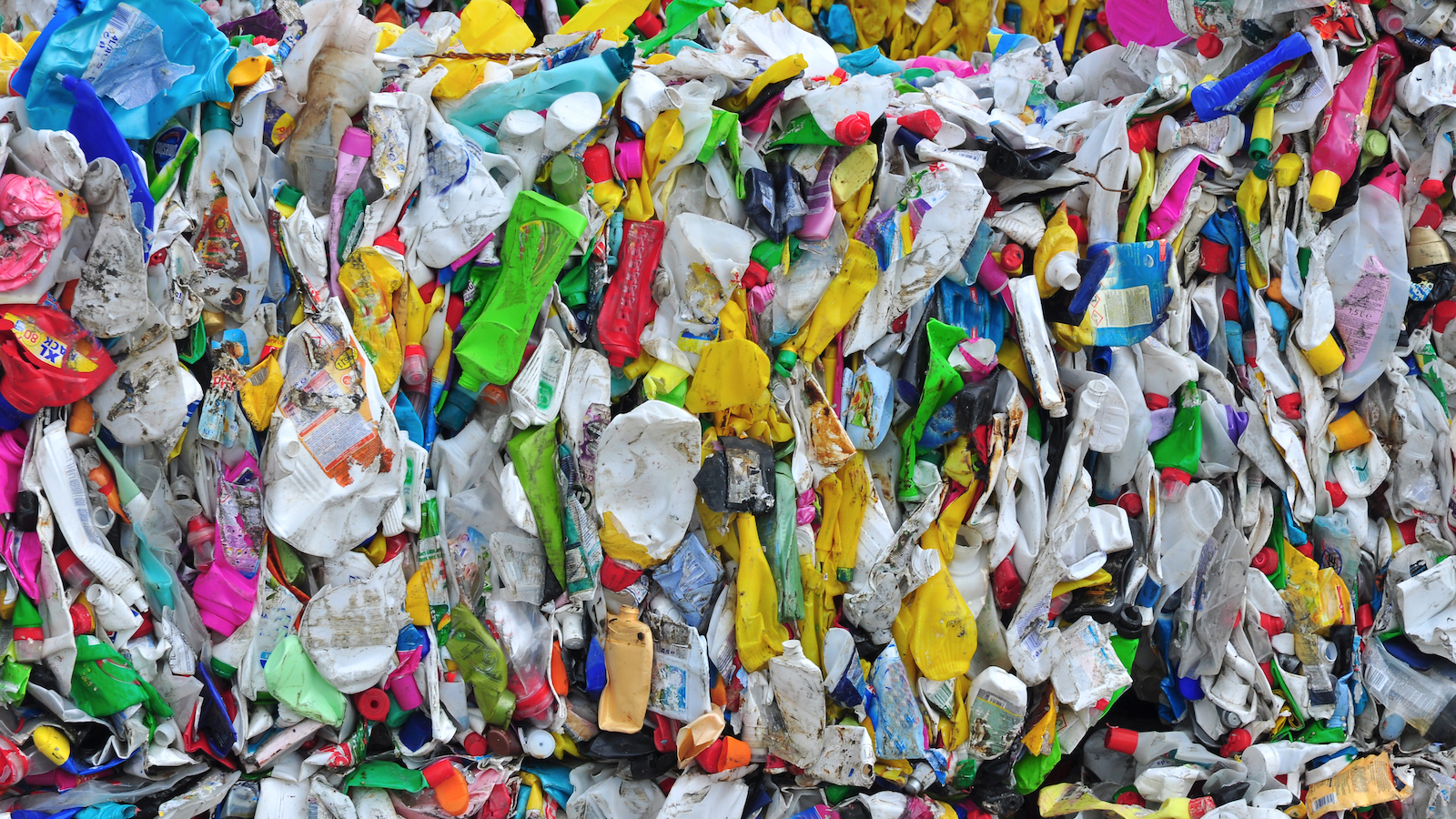
Tell your U.S. senators: Support the Break Free From Plastic Pollution Act
Plastic producers have promoted recycling as the solution for plastic waste. But it’s not working. So, what should we do?
SEND A MESSAGE
Since the mass production of plastic began in the 1950s, more than 8.3 billion metric tons of plastic “stuff” has been produced. Most of that plastic stuff was designed to be disposable, used once before being thrown away.
Of all that plastic ever made, only 9% has been recycled.
Yet, for decades, the producers of all this plastic have promoted recycling as the solution — even as they knew it could never keep up with the never-ending deluge of new plastic products.
So what can plastic recycling be fixed? First, let’s get some facts.
You finish off a carton of yogurt, rinse out the container, and place it in the recycling bin. But will it actually get recycled?
The vast majority of plastic isn’t. Of the 8.3 billion metric tons of plastic ever made, 6.3 billion metric tons have become plastic waste. Nine percent of that has been recycled. Twelve percent is incinerated.
And the rest — a stunning 79% — has been piling up in landfills, or worse. Far too much plastic ends up littering our communities, our parks and our beaches, and an estimated 8 million metric tons of plastic ends up in our oceans each year.
The United States’ recycling rate has stubbornly hovered around 9% for over a decade. Meanwhile, other countries are passing us by, with Europe at a 30% recycling rate, and China at 25%.
Recycling is supposed to work by repurposing old materials so that new ones don’t have to be extracted from the environment.
When a tree is cut down, its pulp might be used to make brand-new printer paper. That printer paper can be thrown away — or, it can be recycled and turned into other paper products, thus reducing the need to cut down more trees.
Plastic is a different story. It breaks down after one or two uses, so it can’t be continuously recycled into new products. It’s expensive to collect and process, because there are thousands of chemically distinct types of plastic that can’t be recycled together. Whether at home or at a recycling facility, all these types of plastic must be carefully sorted.
And, even when plastic is recycled, it requires the addition of new virgin plastic to hold the new plastic product together.
Meanwhile, new plastic is cheap to make. The result? Plastic recycling is less efficient and there just isn’t much of a market for it, unlike for steel, aluminum, paper and other recyclables.
So, what can we do to deal with all of this plastic waste?
When the tub is overflowing, the first thing you should do is shut off the tap. And our landfills are overflowing with single-use plastic.
Most of these plastics are convenient, but not necessary. After all, there are plenty of alternatives to single-use plastic bottles, bags, takeout containers, shipping packaging and food packaging that are sustainable and easily recyclable.
We’re working to move our country beyond single-use plastics by building support for bans on single-use plastics that are almost impossible to recycle and by urging corporations to switch to sustainable alternatives.
Under the current system, plastic producers profit from the sale of their products, while taxpayers are left to pay the financial costs of dealing with the waste those products become.
As long as consumers have to bear the costs — rather than the companies making the plastic — plastics producers have no incentive to stop making more and more plastic.
Arizona PIRG and our national network are working to pass producer responsibility legislation by championing bills state by state — and at the federal level with the Break Free From Plastic Pollution Act.
These proposals hold producers financially responsible for the waste their products become — and use the proceeds to improve and expand recycling, composting and more.
Moving beyond plastic is a big goal — but it starts with a single step.
You can look for easy ways to use less plastic in your own life, for example by switching to reusable grocery bags, carrying a reusable water bottle, or saying “no thanks” to single-use plastic cutlery with your takeout orders.
You might even find a “refill store” in your community where you can bring your own containers to fill with shampoo, detergent, dish soap and more.
But of course, the plastic waste problem is so much bigger than any single individual. That’s why we’re working to hold plastic producers responsible for flooding our lives with plastic. And that starts with passing the Break Free From Plastic Pollution Act.
The Break Free From Plastic Pollution Act would build upon state laws being passed across the country to ban single-use plastics. It would reduce single-use plastic use nationally; finance recycling, composting and reusable infrastructure, and more explicitly prohibit the dumping of plastic pellets called “nurdles” (the building blocks of all plastic products) into our nation’s waterways. And it would save local and municipal governments billions of dollars per year by shifting the cost of managing waste and recycling to the plastic producers.
Add your name to urge your senators to support the Break Free From Plastic Pollution Act today.
The Break Free From Plastic Pollution Act will address plastic waste at every stage, from production to disposal. Join us in building support for this important legislation.
SEND A MESSAGE